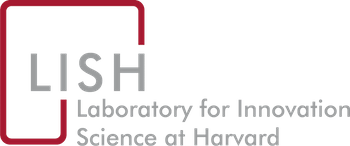Organization & Processes
The Laboratory for Innovation Science at Harvard (LISH) conducts research on how labs operate, including the process researchers take in developing new products and ideas and how best to capitalize on successes and bring solutions out of the lab and into commercial use.
Key Questions
![]()
What are the drivers of productivity in science and engineering laboratories?
![]()
How can crowds be integrated with traditional R&D functions in companies and academic labs?
![]()
What are the biases in the processes of evaluating innovative ideas? How can they be overcome?
![]()
What are the predictors of breakthrough success for innovative scientific ideas?
![]()
